Home Page › Blog › What Are The Best Service Dog Breeds For Seniors?
What Are The Best Service Dog Breeds For Seniors?
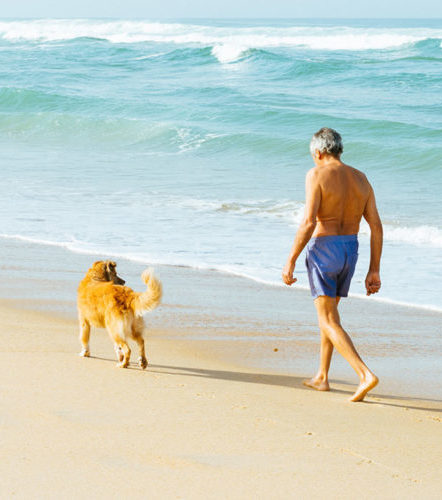
Many seniors find Service Dogs helpful in maintaining their independence while dealing with mobility challenges. Fortunately, Service Dogs are able to travel with their owners wherever they go.
In order to certify your dog as a service dog, you will need to train the animal to provide a task to help with your disability. Although it is not required, you may also submit your dog’s information to get your ID and service dog certification online and enroll it in a national database that is easily searchable.
While most breeds can be trained as a Service Dog, you will want one that can meet the physical demands of the job. In this article you can find some of the more popular breeds for Service Dogs that work best for seniors.
To register your dog as a service dog in our national database, click on the link below to get started.
Retrievers
Both Golden and Labrador Retrievers are common choices for Service Dogs. Gentle by nature, Golden Retrievers are popular with families that have young children, but they are also excellent companions for seniors with mobility issues. Goldens are very intelligent and easily trained. In addition to their other wonderful traits, they are large and strong enough to provide physical support for a person with mobility challenges. For example, they are good at carrying things—as their name suggests—and can help provide support for a person who has balance issues or difficulty standing.
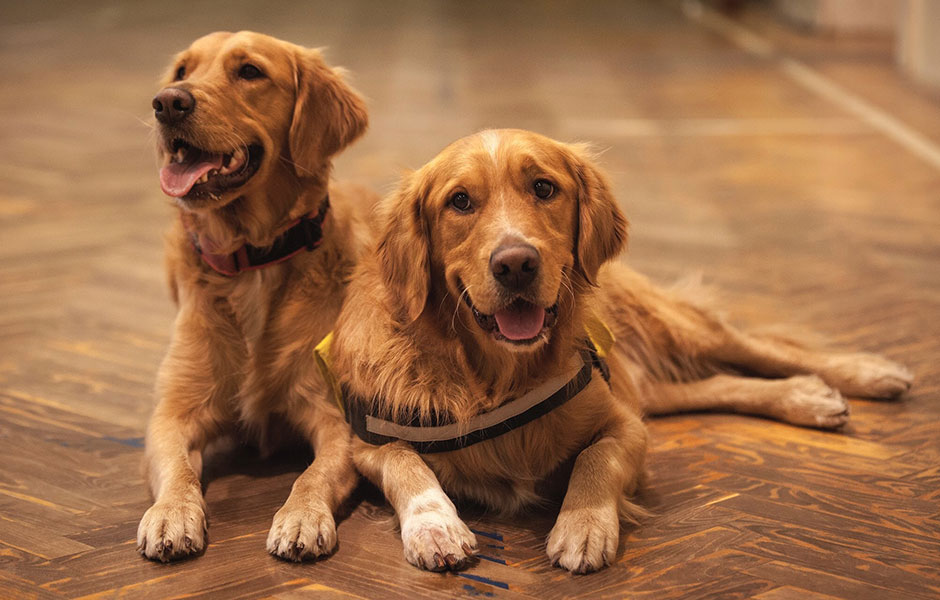
Labradors are also very intelligent, and have sharp hearing and a strong sense of smell. Like Goldens, they are easy to train, with friendly personalities and a strong desire to please. They also have the strength to assist with a wide variety of physical tasks.
Poodles
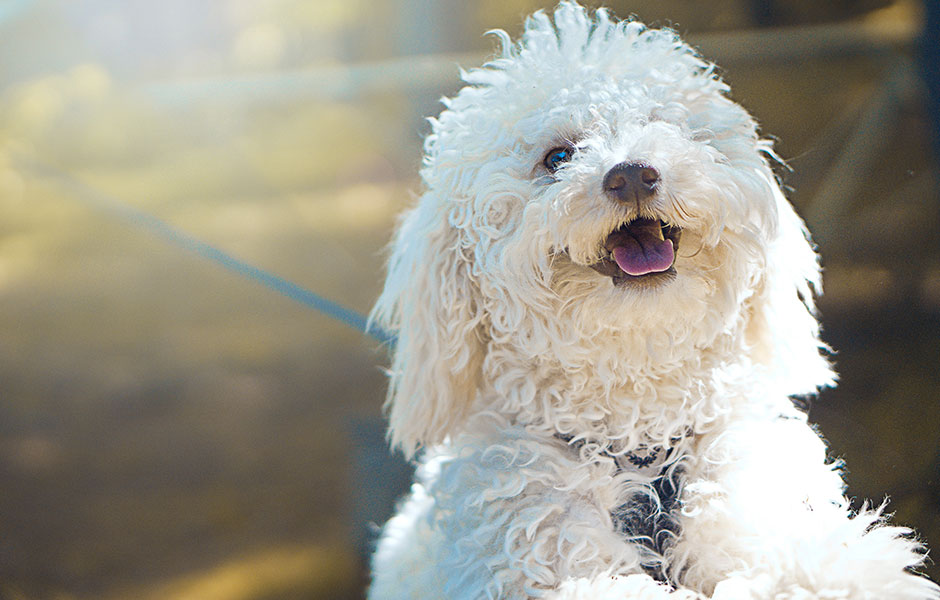
Poodles are usually medium-sized dogs, and are able to perform several tasks, such as carry objects, fetch things, turn lights on and off, and open and close doors. They are also known for their ability to sniff out allergens in food, so if you have a severe food allergy, they can be an excellent choice. Also friendly by nature, Poodles are easy to train.
German Shepherds
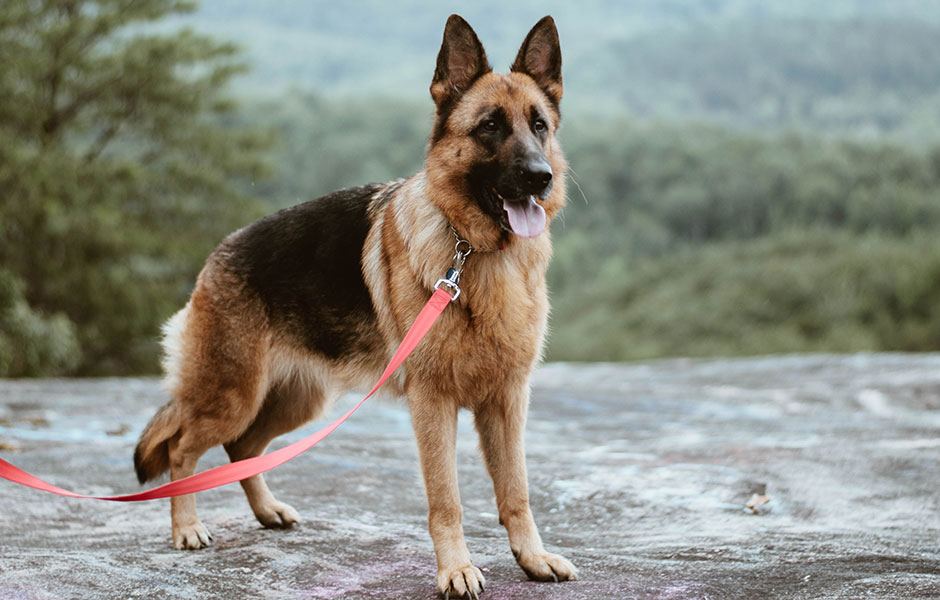
Like Retrievers, Shepherds are large dogs that do well at physical tasks like providing support and helping people get around. However, they test well in all Service Dog categories, and make excellent guide dogs for the visually impaired. They can help you move safely through your home and the outside world, as well as give you extra support if you need assistance with standing, walking, or other movements.
Pomeranians
Pomeranians are a smaller breed, and not as well suited for a person who needs a lot of physical support. Some people think they are too small to be Service Dogs, but this is a common misconception. They make excellent medical alert dogs for people who may have sudden changes in condition—such as people with diabetes, heart conditions, epilepsy or other neurological issues. For example, they can let you know if your blood sugar has fallen too low, so you can eat something or seek medical attention.

Pomeranians are also great for people with hearing impairments. They can be trained to alert you to sounds you wouldn’t otherwise notice, like a knock at the door, a ringing doorbell or phone, etc.
Bernese Mountain Dogs
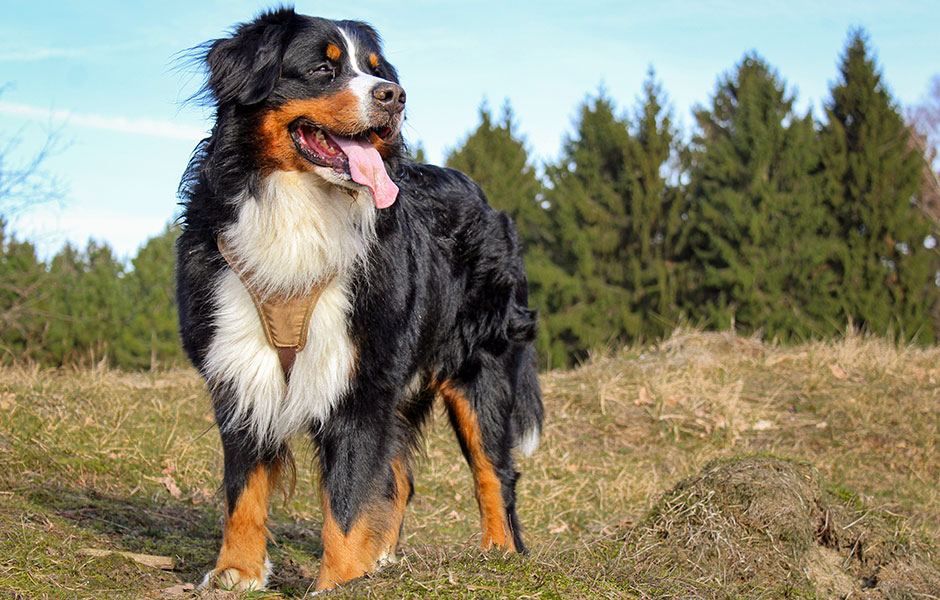
This is another large breed suitable to be a Service Dog for owners with physical support needs. In training, they have to prove they can support the weight of their owner and pull a wheelchair in order to be of assistance. Friendly and intelligent, Bernese Mountain Dogs are capable of a variety of other tasks, including picking up items and even opening the door for emergency services personnel if you have an emergency and need help.
Collies
Many of us have seen reruns of that old TV show about the Collie “Lassie” who was always running for help when her young human friend was in trouble. As it turns out, Collies really are very intelligent, and great at caring for their human companions. They are large enough to help with physical tasks, but are also known for their ability to detect seizures in advance. If you have epilepsy, a Collie may be trained to let you know before a seizure starts, so you can call for help, take medication, or make sure you aren’t in an unsafe place (like a bathtub).
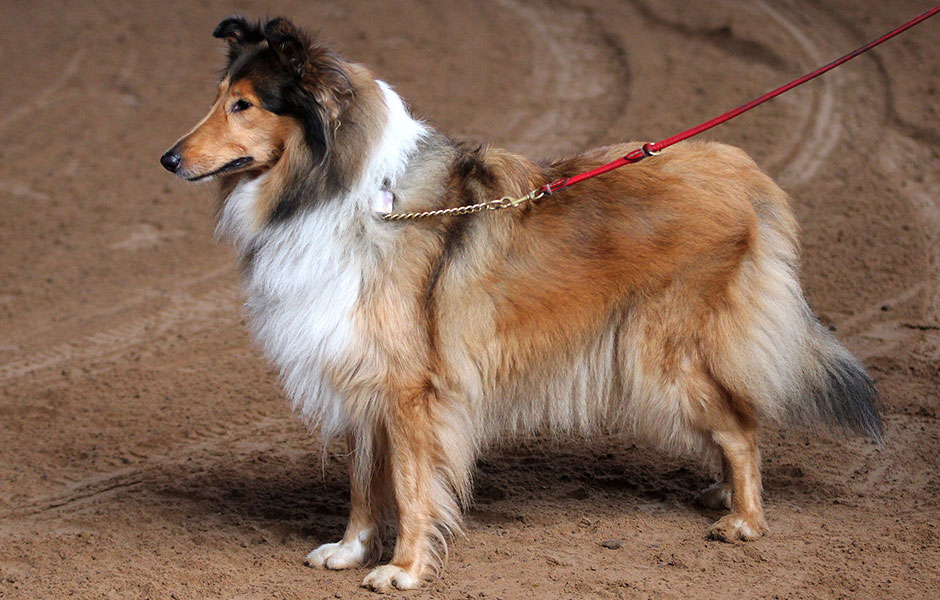
Collies are also great at providing emotional support for patients with mental health issues like anxiety and PTSD. However, as a long-haired breed, they do shed sometimes, so you will want to find a good vacuum cleaner for picking up dog hair.
If you are ready to take your Service Dog with you after you’ve gone through proper training, you may considered ordering your Service Dog a vest and ID card and registering their information into Service Dog Certifications’ global database. For more information, click on the image below.
About the Author: The writing team at Service Dog Certifications is made up of folks who really know their stuff when it comes to disability laws and assistance animals. Many of our writers and editors have service dogs themselves and share insights from their own experiences. All of us have a passion for disability rights and animals.
5 comments
Leave a Reply Cancel reply
Latest Posts
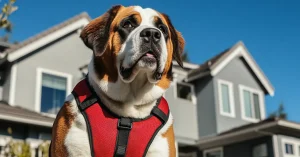
The Fair Housing Act Explained for Assistance Animal Owners
The Fair Housing Act (FHA) is a federal law in the United States that prohibits discrimination against people who need a support animal for their physical or mental health. The FHA applies to landlords in all 50 states. Under the Fair Housing Act, if you need a service dog or an emotional support animal, your […]

Read More
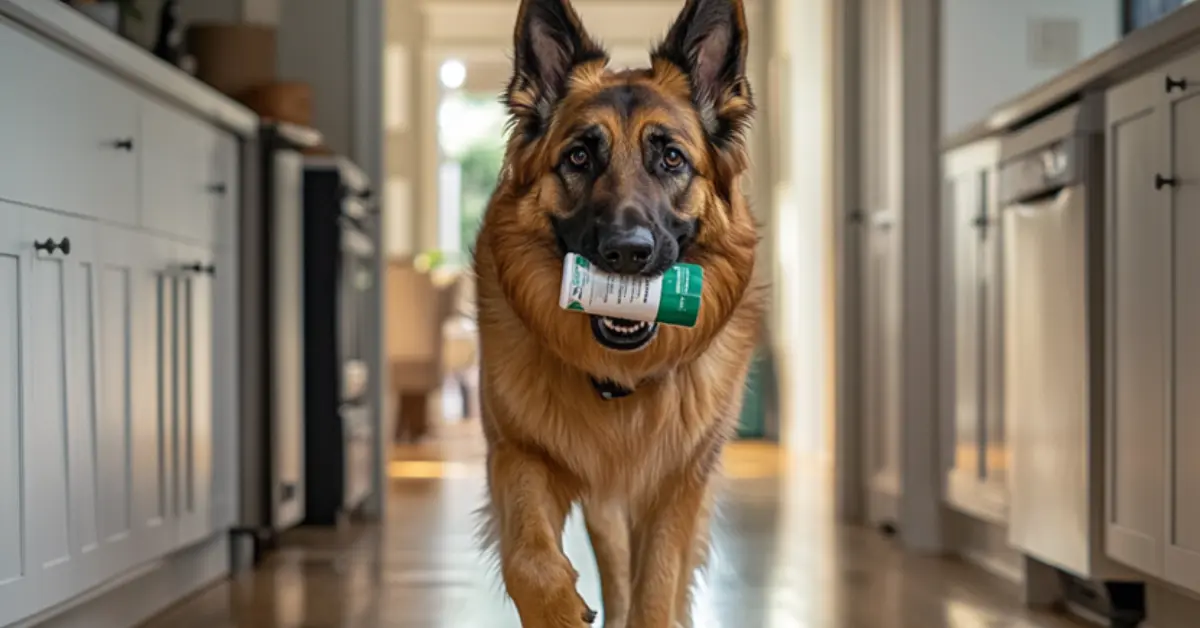
How a Service Dog Knows When It’s Time For You to Take Medicine
Service dogs can help their handlers by reminding them to take medication. These highly trained dogs know when it’s time for their handler to take medicine through routine recognition, alarm responses, scent detection, and awareness of physical and behavioral cues. Training a service dog to do this is one of the many service dog tasks […]

Read More
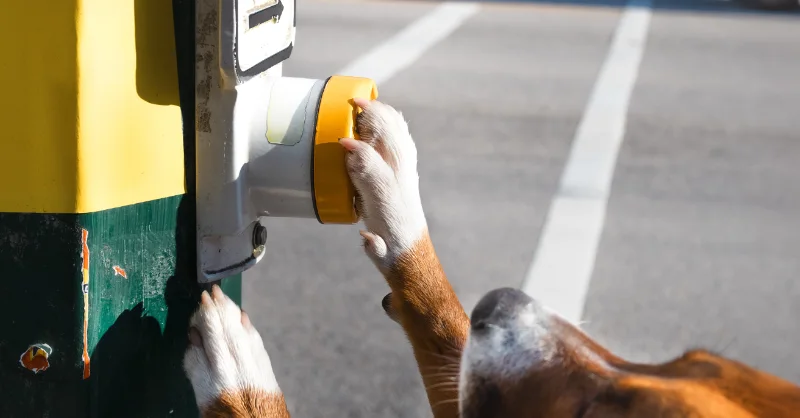
The Ultimate Guide to Service Dog Tasks: A Comprehensive List by Disability
Service dogs are remarkable animals trained to assist individuals with disabilities by performing various tasks. According to the Americans with Disabilities Act (ADA), a dog can become a service dog if it has been trained to perform a task that helps with the handler’s health condition. Service dogs can help with physical disabilities as well […]

Read More





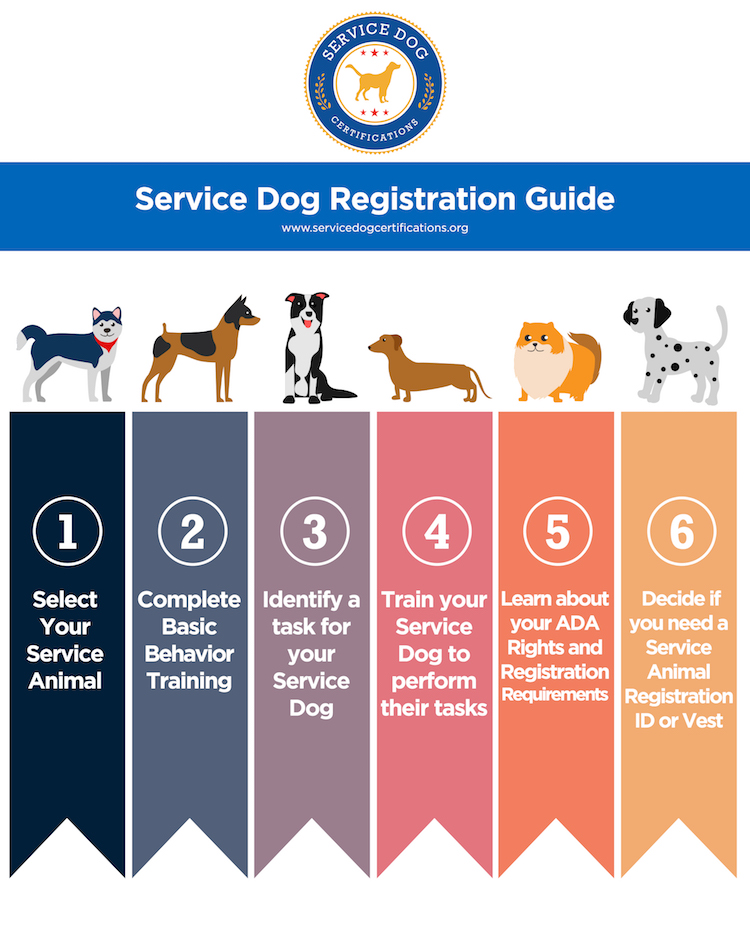

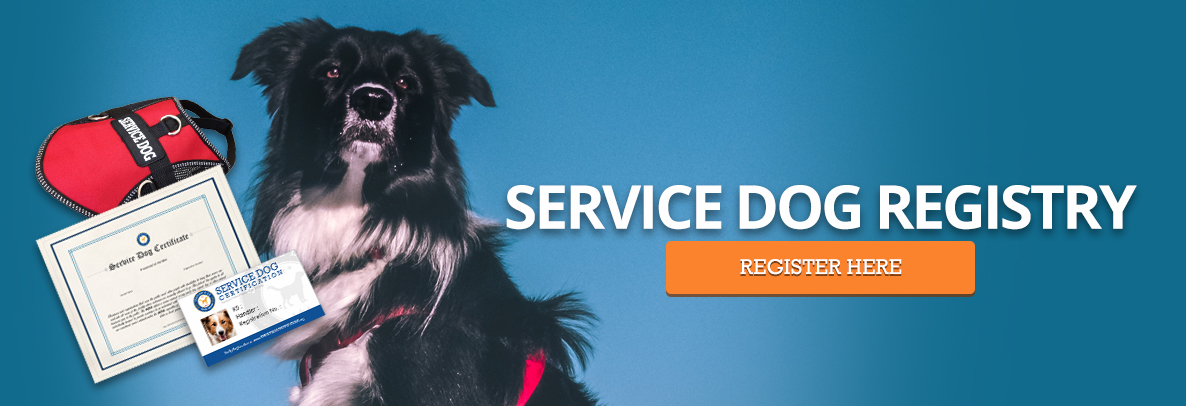

Hello,
My sd passed in February 2020. Though she was very small she was mighty in 💗. She was my migraine alert dog and also alerted my husband differently by licking him. We discovered she was letting him know when his blood levels were off. Grace a female maltese can be seen on Facebook to educate those who don’t think a small cute dog can have a significant purpose in life or help those over 50 w medical issues. I’m having great trouble though trying to afford another. I had only heard last year that as a licensed assistance dog I could have received between $2000-$3000 a year to assist me with her care but I don’t know the name of the organization. She passed all her public access tests and the shelter in California gave me her tag which said assistance dog on it w her permanent I’d # she had all her life. I carry it with me always. Please. Anyone who can help me afford a new puppy to train with love, kindness, respect for her in the most nurturing was possible-could you please contact me as soon as you can? My pain has once again increased and my husband misses the living relationship we had for her. Now in Nevada is seems the prices have skyrocketed dramatically. People want a cute puppy they can shove into their purse but what about those on a strict fixed income? One must raise an sd as young as possible and shelters often have so many abused animals. I know. We adopted a dog who had epilepsy in the 80s. She was a wonderful medium sized dog and we loved her for 12 years+ plus but we had an active family then. My husband and I were in our early 30s. Then I developed painful migraines after 1992. I prayed for there to be a way to stop them. While looking for a sheltie one day a pet store was out. As I was leaving my gut instincts said that’s the one. I turned around and saw the tiniest puppy I’d ever seen. I saw the price and I fled but a week later i was back with half the money it took me an entire year to save. They called the owner who said bbn i had enough. An hour later I was holding her and I didn’t have a clue why only that I trusted my instincts. I taught her not to bark before she was one because that’s a migraine trigger. Before age 2 she began gesturing in a new way and by the 3rd day I knew Grace knew before my pain came when I could do something about it to stop it from coming. A friend in a sd group invited me in. Though I didn’t have the issues the group had they gave me valuable information and encouraged me to get her licensed due to her size. It was 2007 then and I suppose the laws are much less lax as I see dirty old dogs in shopping carts at the store! But Grace was bathed once a week. Groomed every 2 months. I never dragged her anywhere. She came w me to my doctor’s appointments and he was amazed at my marked improvement. In my family we’ve always said thank you to all our dogs and bedtime was no exception. Now and then I’d wake to feel her laying on my chest. This is how she alerted me in my sleep. It was her way of saying, “Mom your pain is coming. ” I’d take my rx. Hug her and say Thank you Grace. Mommy loves you and you’re a very good girl. I also kissed her and she’d lay back near my toes and go to sleep. By Grace doing this o never once woke up with a migraine hangover. These things can last for weeks and weeks. I simply don’t know what to do. While she did all this by her nature and easy going way I know I cam train a dog to do things too. It’s simply that I don’t have 4grand to plop down. I only paid $900 for her and in 2005 this is a lode of cash for a 13 week old ten ounce puppy. We moved here because California became too expensive for us to stay. Food is still expensive but we all have medical costs to pay and the health insurance here pails to what we got in So Calif. I miss it. I might be able to drive back to Orange county alone if I found another puppy. My husband now disabled more than I wouldn’t be able to travel though. Or Arizona? Idk.🤷♀️
I’ve dealt with Chronic Fatigue Syndrome since I was only a 13 year old little girl. Pregnancy caused me to develop Fibromyalgia around age 37. I was in bed for 16 years as my children grew up without me. They’re now all grown. No one diagnosed me. I studied diseases for a year and found only one sight that mentioned it and my dog Grace was by my side. My migraine dr concurred w my findings but said there was nothing which could be done but with the love of Grace I triumphed and got out of bed in 2013!! My husband had always been supportive and the glow in his face said it all. Since Grace passed he can no longer walk and his health has declined. Doctors here are still running tests on both of us. With degenerative disc disease in my lower back and 3 crushed discs pushed up in the back of my neck making it bend I find myself in the roll of caregiver in our ever slowing lives and a new dog wou look d bring us so much joy. I’ve heard of toy shelties at Fox Point Farms in Nevada but it’s 8 hours away and that means staying in a hotel over night but I don’t think he could endure the trip. They’re more active though. While we’ve both had shelties in our lives we were active kids then too. A smaller maltese puppy is simply what I know has worked for us both in our late 60s. He’s 69. This is not a made up story by anyone. It’s my story and I own it. I have Dream Catchers by Cherokee West on fb and every cent I make goes towards saving for another maltese medical dog for us. While many of you may be skeptical that’s your right. We both owe our lives to Grace. We only ask for the chance to bring another dog similar in size into our home to help us medically and spiritually as well. She was a pleasure to love and care for. It’s rare for these dogs to be in service. Yet there are several accounts from people praising the maltese for their dedication to their owners. Were just a couple of old folks trying to get by like everyone else. Thanks
Thanks for the information on Service Dogs. My husband and I are retired Registered Nurses. I am Disabled with Giant Cell Arteritis and have Mobility Impairment. I am looking at Collies for a possible Mobility Dog. I also have severe Anxiety due to the illness and not being able to ambulate well and have fallen several times. We have a rescue Corgie Dauchson Jack Russell beagle mix and a pure breed long haired Chiahuahua that while throwing my husbands rachetballs and our Corgie mix fetching them has made my hand coordination go from not eating with utensils to independent now and brushing our long haired Chiahuahua and holding him more independent with upper body coordination. I am now progressing to working on ambulating and am searching for a collie for mobility purposes. I have had both outpatient and home rehab with occupational and physical therapy for over two years as well. I am in hope of certification of our small dogs and a new collie for service dogs. Thanks for your information as is much helpful!
Best Regards,
Kelli Dawn Hornsby
We think you’ll find this article covering some basics regarding service dog requirements helpful: https://www.servicedogcertifications.org/service-dog-requirements/
We’re so happy to hear about how your dogs help you and wish you the best in your journey.
I wish I could afford a service dog To help with mobility issues.
Adopting a fully trained service dog can certainly be very expensive. One alternative route you could explore is self-training a service dog, or training a service dog with the assistance of a paid professional trainer. Those methods are also allowed under ADA rules.